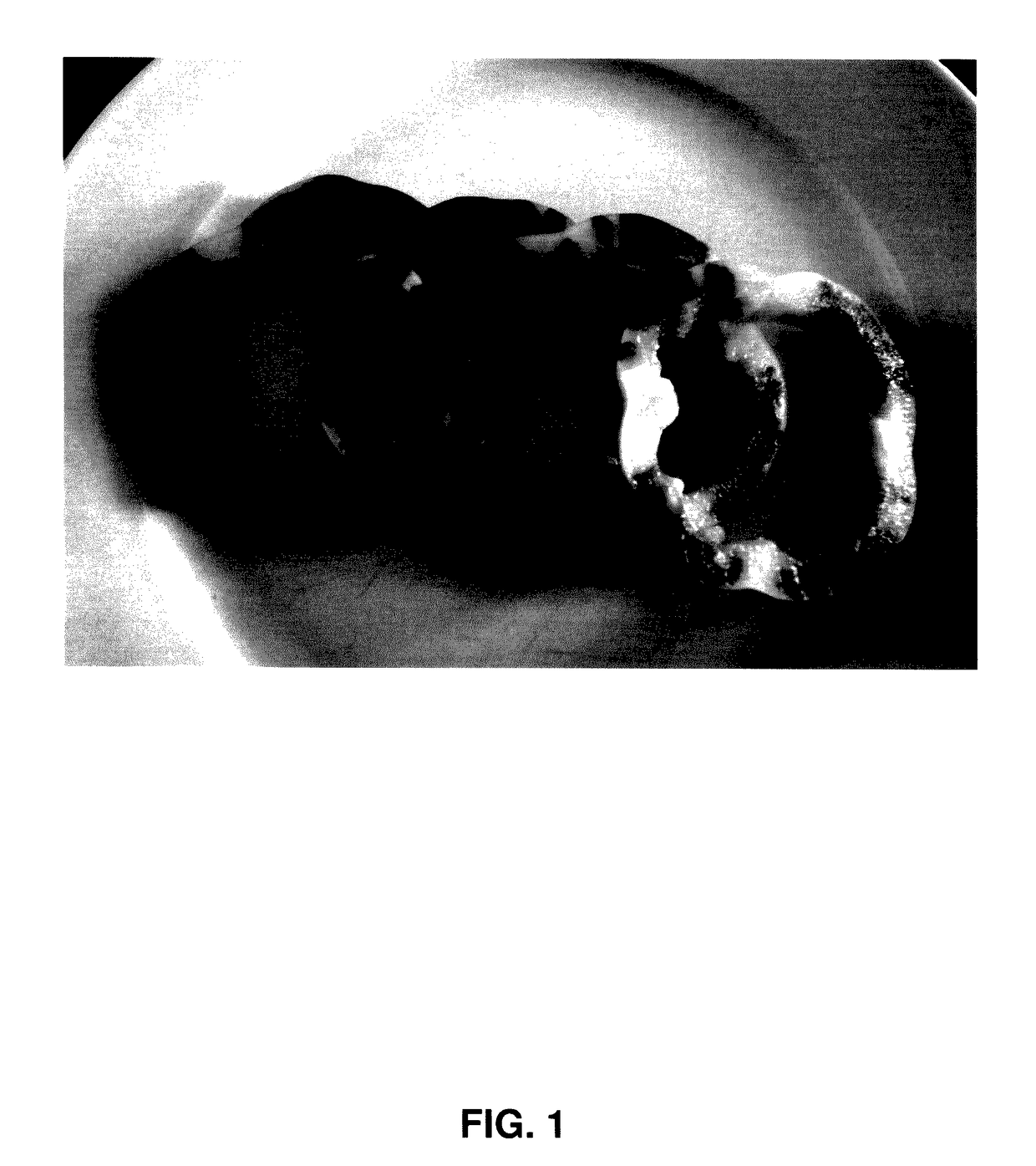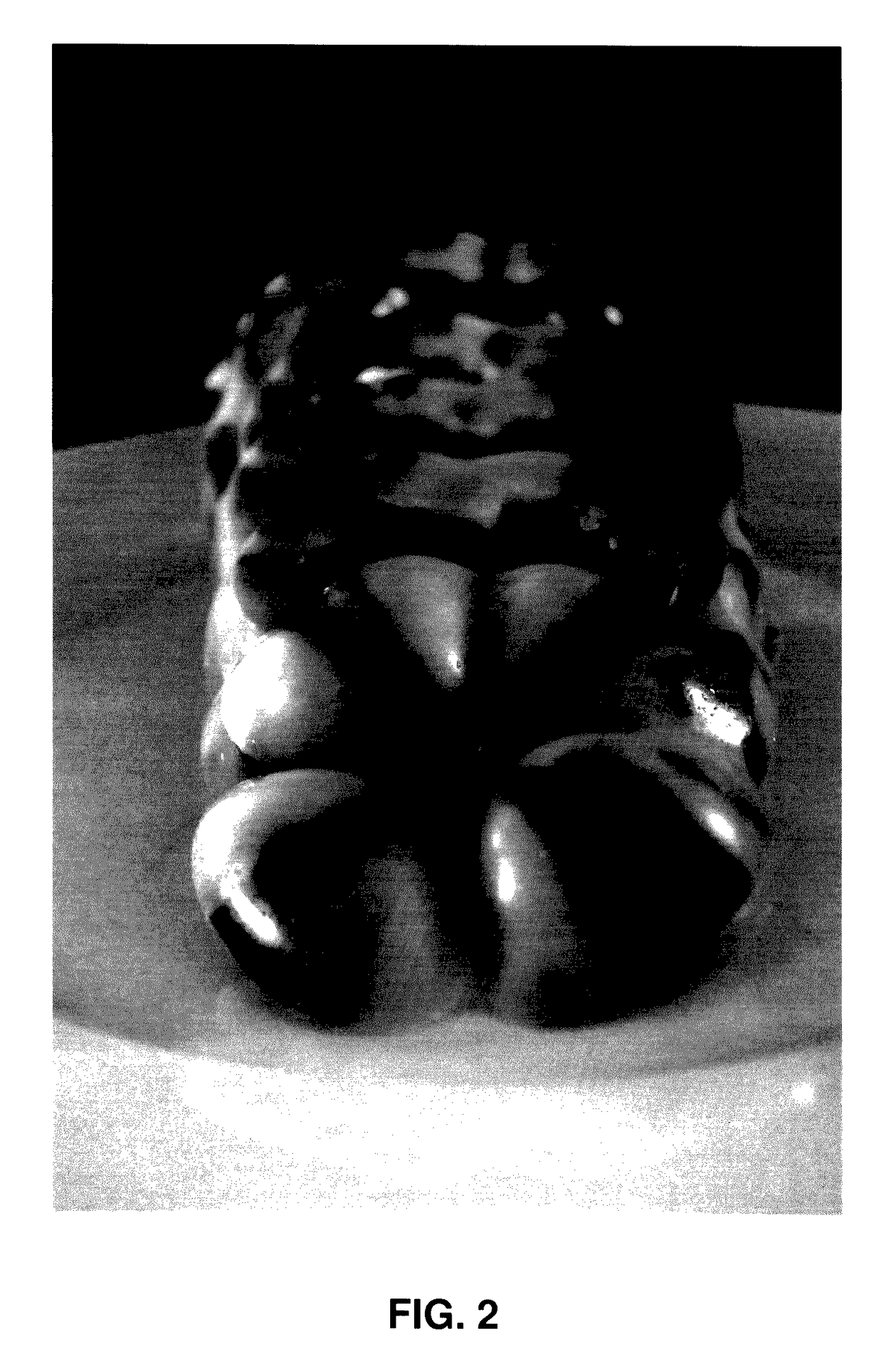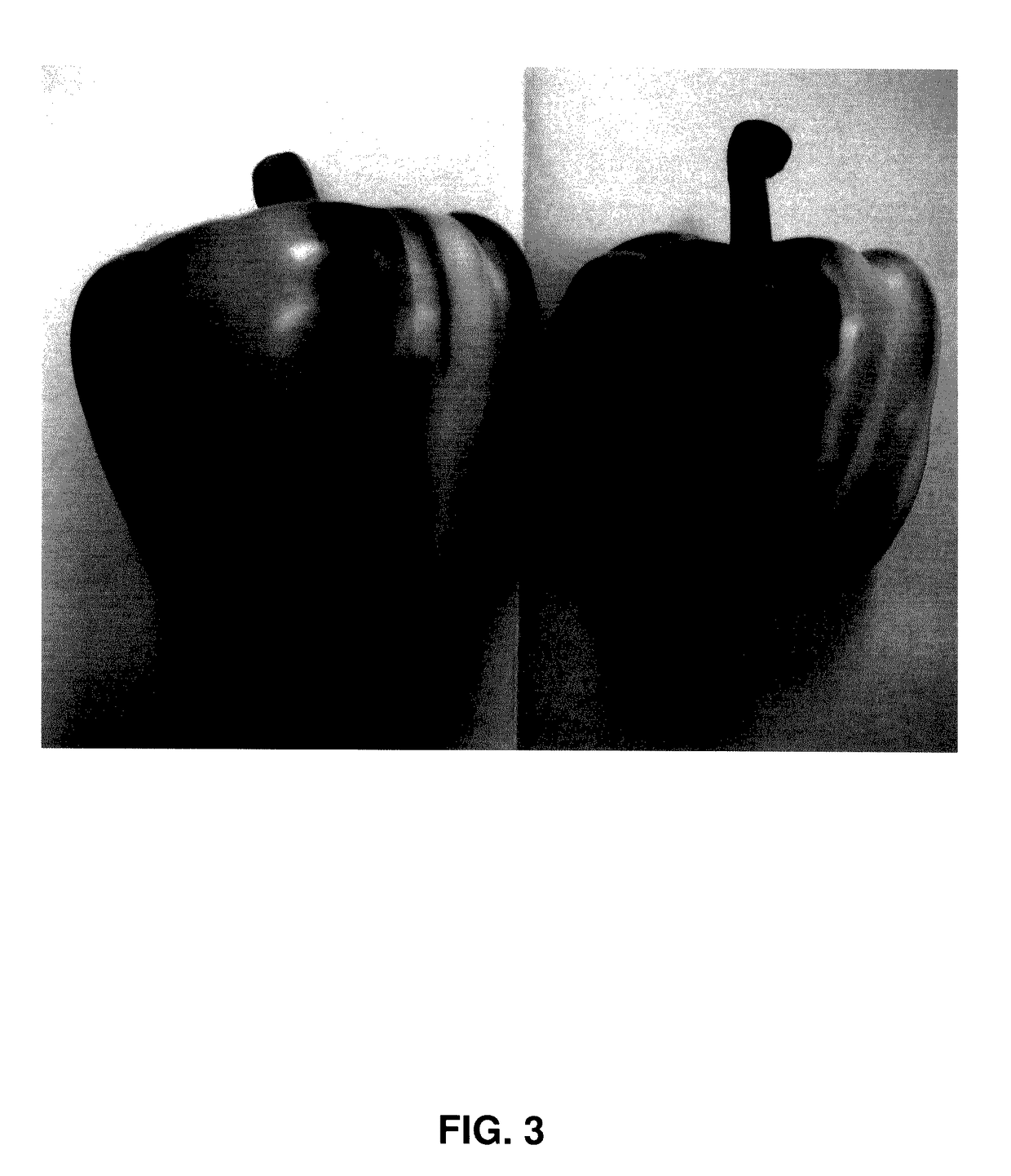Pepper plant named ‘E20B3751’
a technology of pepper plant and e20b3751, which is applied in the field of pepper plant named ' e', can solve the problems of increasing the chances of cross-pollination, not as easily, and having adversity roots
- Summary
- Abstract
- Description
- Claims
- Application Information
AI Technical Summary
Benefits of technology
Problems solved by technology
Method used
Image
Examples
Embodiment Construction
[0089]There are numerous steps in the development of any novel, desirable plant germplasm. Plant breeding begins with the analysis and definition of problems and weaknesses of the current germplasm, the establishment of program goals, and the definition of specific breeding objectives. The next step is selection of germplasm that possess the traits to meet the program goals. The selected germplasm is crossed in order to recombine the desired traits and through selection varieties or parent lines are developed. The goal is to combine in a single variety or hybrid an improved combination of desirable traits from the parental germplasm. These important traits may include higher yield, field performance, fruit and agronomic quality such as fruit shape and length, resistance to diseases and insects, and tolerance to drought and heat.
[0090]Choice of breeding or selection methods depends on the mode of plant reproduction, the heritability of the trait(s) being improved, and the type of cul...
PUM
 Login to View More
Login to View More Abstract
Description
Claims
Application Information
 Login to View More
Login to View More - R&D
- Intellectual Property
- Life Sciences
- Materials
- Tech Scout
- Unparalleled Data Quality
- Higher Quality Content
- 60% Fewer Hallucinations
Browse by: Latest US Patents, China's latest patents, Technical Efficacy Thesaurus, Application Domain, Technology Topic, Popular Technical Reports.
© 2025 PatSnap. All rights reserved.Legal|Privacy policy|Modern Slavery Act Transparency Statement|Sitemap|About US| Contact US: help@patsnap.com



